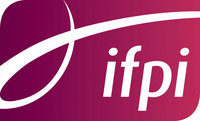95% of music downloads in 2008 were illegal, says IFPI
 The International Federation of the Phonographic Industry, or IFPI, is basically an international version of the RIAA and BPI, who claim to act as a trade body for record labels, but seem to only exist in reality to head up the music industry’s anti-piracy campaign. True to that role, last night it released a statement claiming that 95% of music downloads in 2008 were illegal.
The International Federation of the Phonographic Industry, or IFPI, is basically an international version of the RIAA and BPI, who claim to act as a trade body for record labels, but seem to only exist in reality to head up the music industry’s anti-piracy campaign. True to that role, last night it released a statement claiming that 95% of music downloads in 2008 were illegal.
However, there’s some bright news for the labels hidden in there too – download sales are up 25% on last year, and now make up a fifth of all recorded music sales. The IFPI reckons that it’s worth £2.5 billion.
Right – hardcore numbers time. The IFPI reckons that 40 billion music tracks were illegally shared in 2008. There were 1.4 billion single tracks legally downloaded, and the top seller was Lil Wayne’s Lollipop, which shifted 9.1 million digital copies. In the UK, we purchased 110 million tracks in 2008 and 10.3 million digital albums – accounting for 7.7% of the market.
Now, don’t fall into the trap of thinking that this report means that the industry is missing out on 95% of its revenues – one illegal download is not the same as one lost sale. Also, many people download stuff that they own on CD simply because it’s faster and more convenient to download an album than to get it off a CD.
However, it’s clear that this is a massive problem, and the music industry needs to do something different, fast. The major labels are taking baby steps in the right direction, but it’s services like Spotify that really lead the way – services that feed the public’s addiction to free music, while still being about to profit from it. At the moment, the music industry is a veritable goldmine. You’ve just got to work out how to get at the gold.
For more on the subject of Music 2.0, check out my weekly digital music editorial, Noise Gate.
Related posts: RIAA to drop failed lawsuits strategy | Muxtape down, RIAA blamed, users weep
Discover more from Tech Digest
Subscribe to get the latest posts sent to your email.

